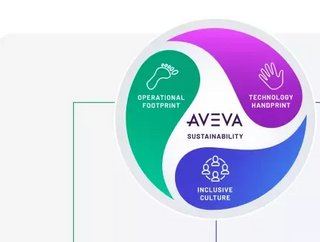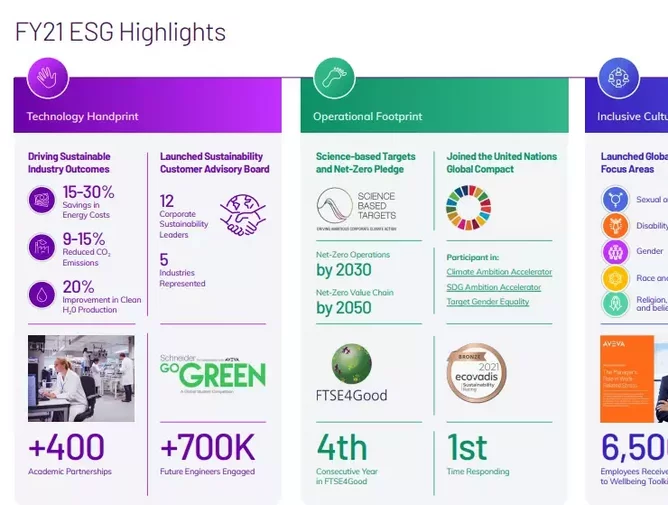AVEVA commits to net zero operations by 2030

AVEVA is committed to achieving net-zero emissions from operations (Scopes 1 and 2) and cutting Scope 3 emissions by 50% by 2030, according to its first Sustainability Report.
"We believe this will put us on a strong path to reach net-zero across our value chain no later than 2050, in line with the highest level of ambition under the Paris Agreement," it states.
Its 2022 priorities will be to continue the shift to renewable energy across its offices and data centres; engage customers and suppliers on climate action opportunities and advance dynamic work and sustainable business travel through policies and practices; complete climate scenario analysis and further integrate climate into its risk management; and continue to enhance AVEVA’s legal and ethical compliance program and build stakeholder trust through increased disclosure.
Peter Herweck, CEO of AVEVA, said with the clock ticking on delivering the United Nations 2030 Agenda for Sustainable Development, AVEVA is committed to being part of the solution to a more socially just and environmentally sustainable world.
"We fully recognise the significance of ESG aspects of business performance. This first report is intended to provide additional insight into the steps we have taken in this past year to more deeply embed sustainability and ESG into our culture and corporate strategy.”

Alongside renewables-based electrification, bioenergy and hydrogen, the reports says there is "growing consensus" that CCUS technologies have a key role to play in the transition to net-zero.
"To deliver the promise of a global clean hydrogen economy, CCUS will be crucial and industrial software is helping to drive an exciting acceleration in the deployment of successful projects," it states.
The report also commits to advancing women in technology with:
- 30% leadership roles and 40% management roles by 2030
- 50% women hires by 2030
- <1% gender pay parity gap
Earlier this year, AVEVA joined the United Nations Global Compact (UNGC), a global corporate sustainability initiative with more than 12,000 companies and 3,500 non-business signatories based in over 160 countries.






